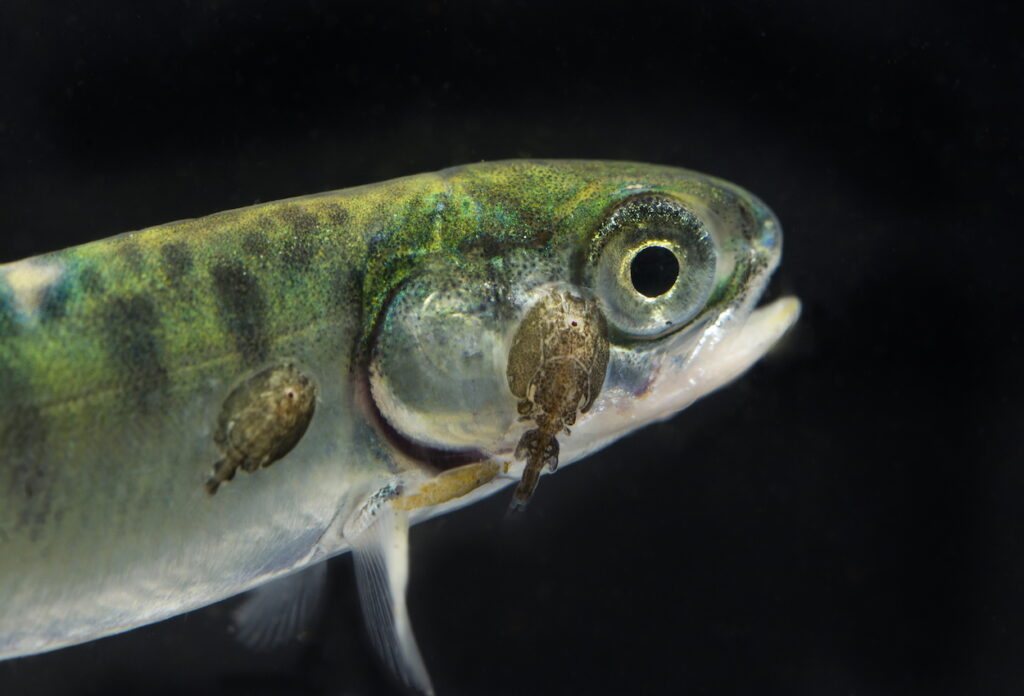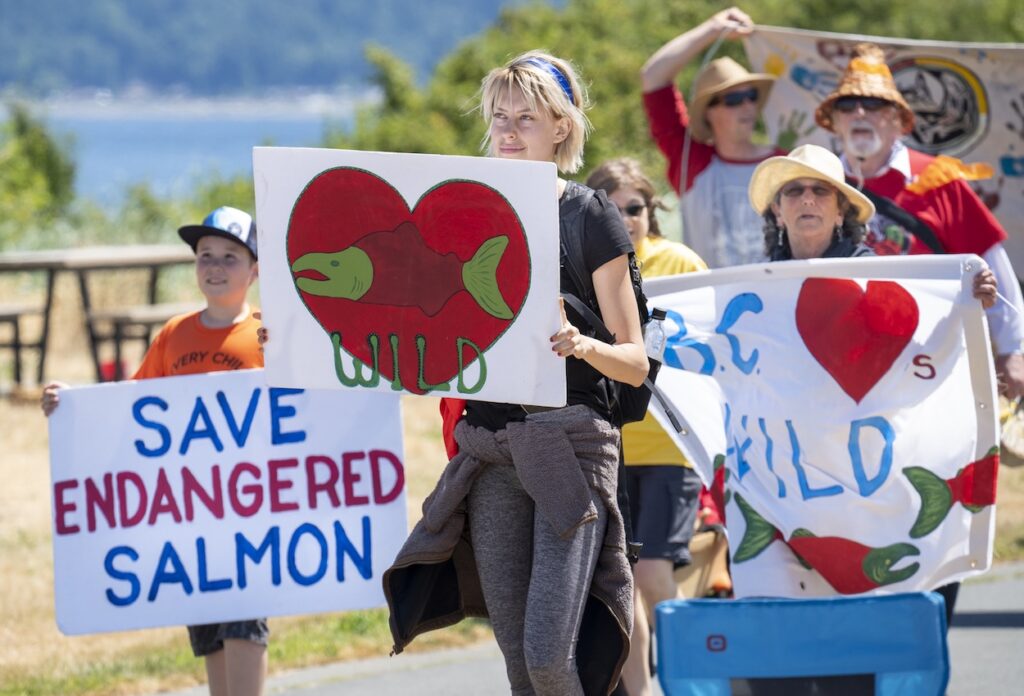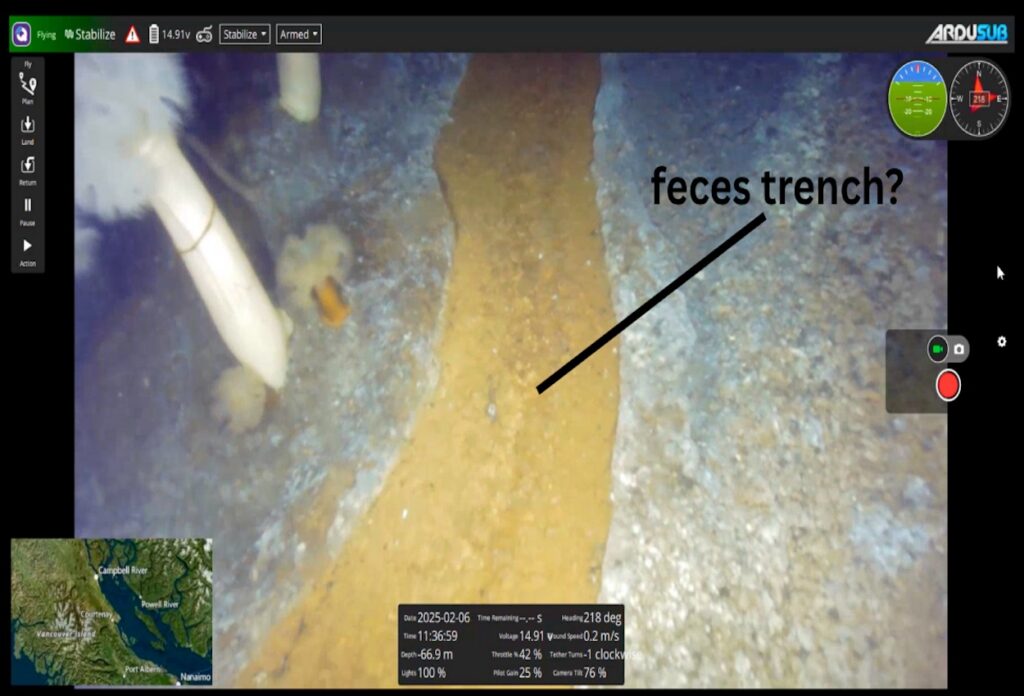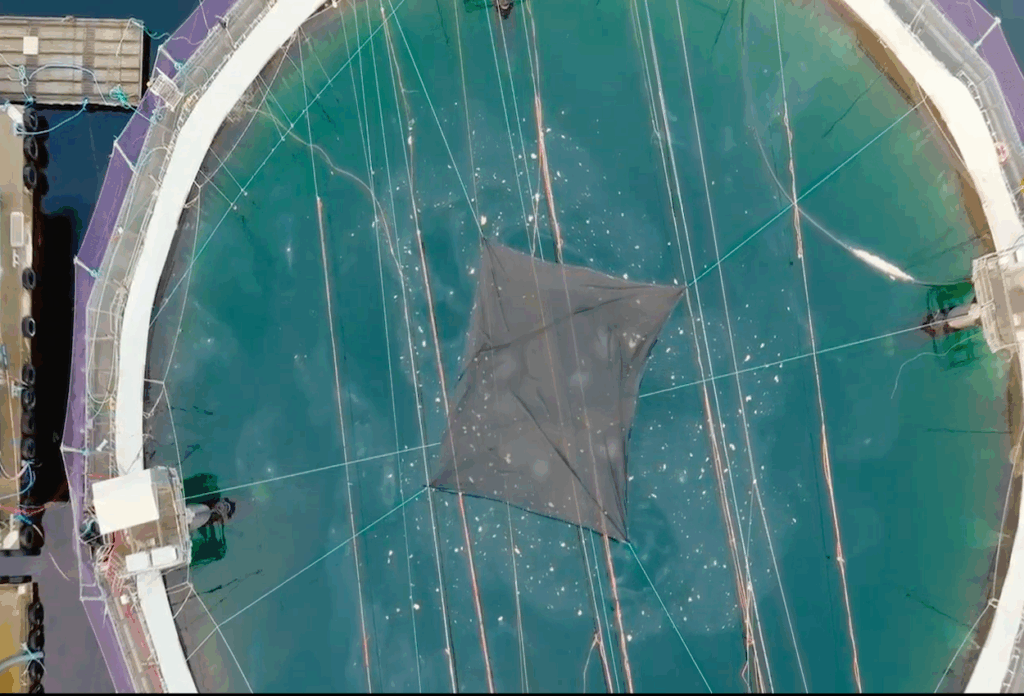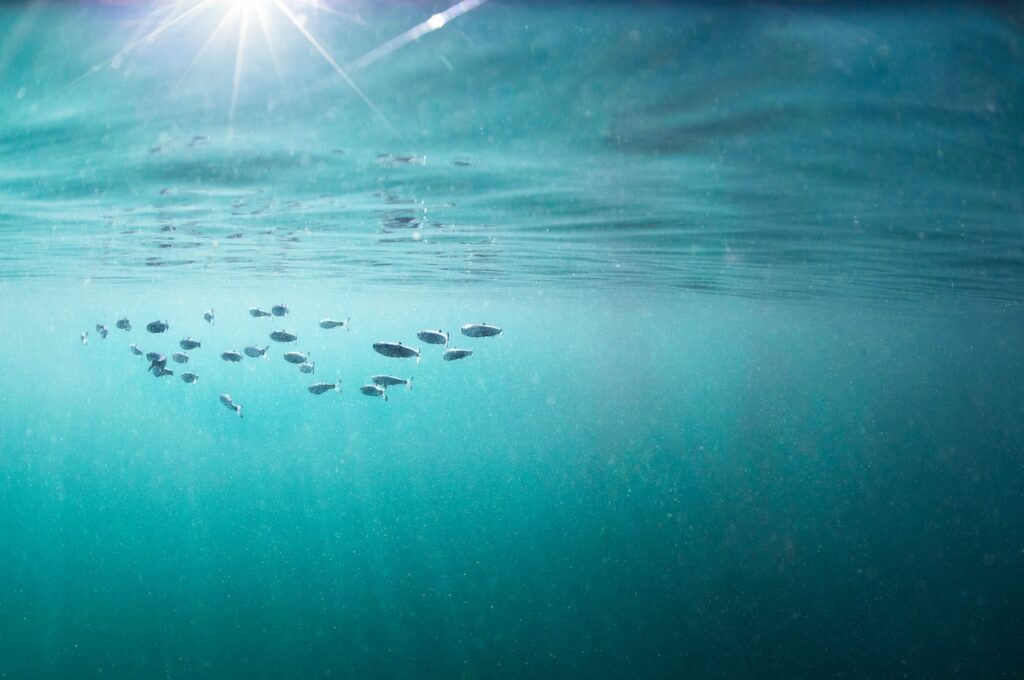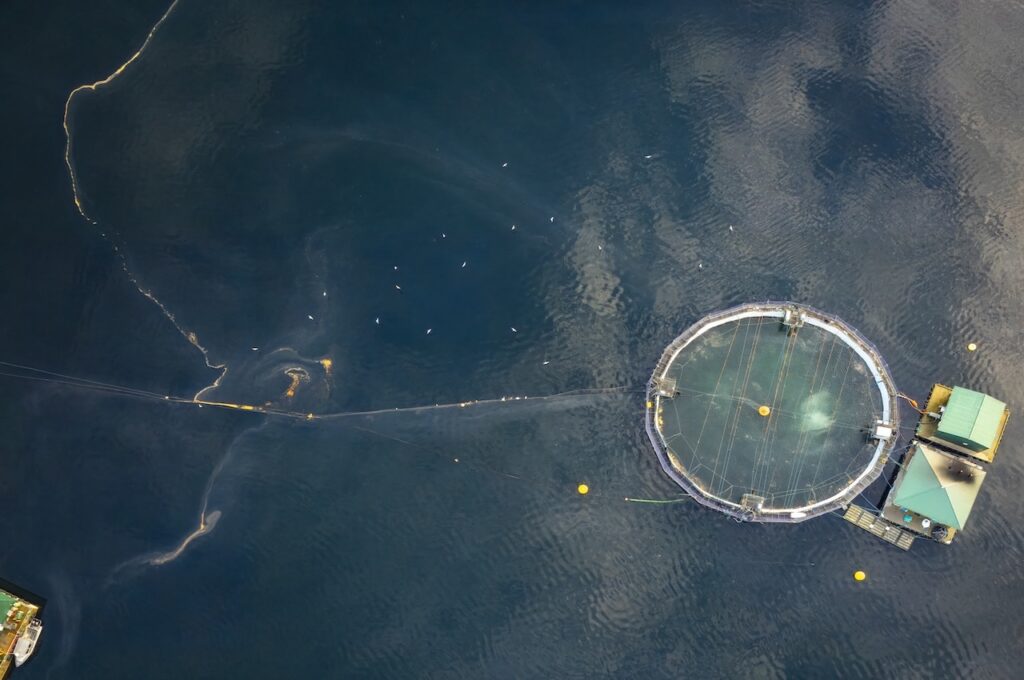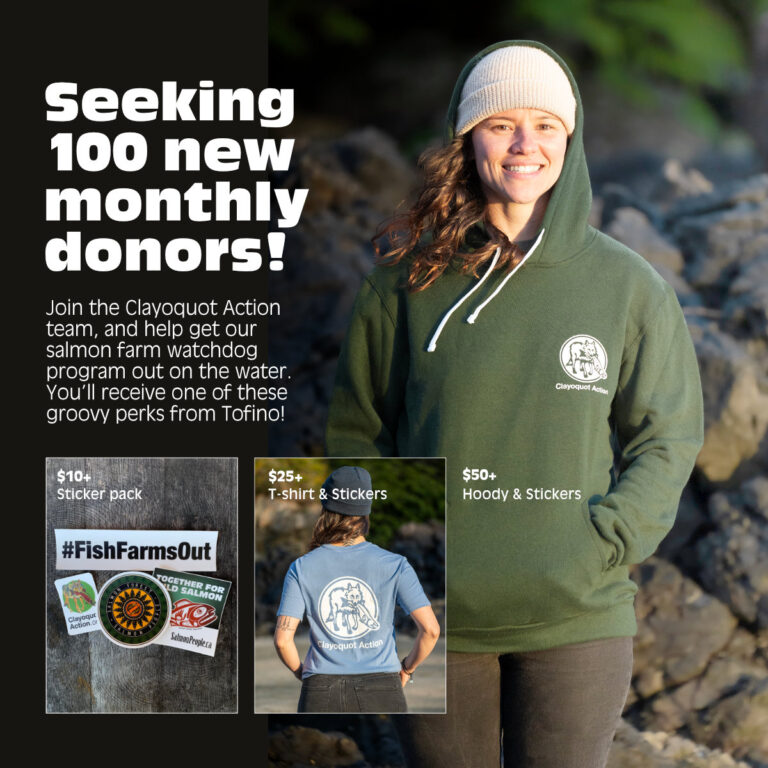(Clayoquot Action is based in Tofino. We occasionally travel to other regions when relevant to our campaigns to protect Clayoquot Sound from mining, oil spills and salmon farms. For example, Imperial Metals’ 2014 Mount Polley disaster, and ongoing protests against Kinder Morgan’s pipeline expansion. We recently travelled to northern Vancouver Island to support First Nations occupying fish farms there. Clayoquot Action recognises and supports the indigenous rights and title of the Kwakwaka’wakw First Nations).
A tattered Canadian courtesy flag flaps from the stern of the Norwegian-registered fish transport vessel MV Viktoria Viking. A traditional song rings clear in the early morning breeze—hereditary Chief Ernest Alfred from the ‘Namgis Nation is preparing to board a Marine Harvest fish farm near Alert Bay.
Two fish farms peacefully occupied by First Nations
It all began with the Sea Shepherd’s second Operation Virus Hunter this summer. Chief Alfred and hereditary Chief George Quocksister Jr from the Laichwiltach Nation boarded 11 farms between Campbell River and Alert Bay, gathering underwater footage. They found emaciated and diseased salmon, some with sea lice, mingling with wild fish, including herring and rock cod. The photos were very disturbing—it was the final straw for these Nations, who have said no to salmon farming in their territories for 30 years now.
The ’Namgis and Mamalilikulla First Nations peacefully occupied Marine Harvest’s Swanson Island farm on August 23rd. The Musgamagw Dzawada’enuxw Nation occupied another farm shortly thereafter, and now have an on-going occupation on the Midsummer Island farm.
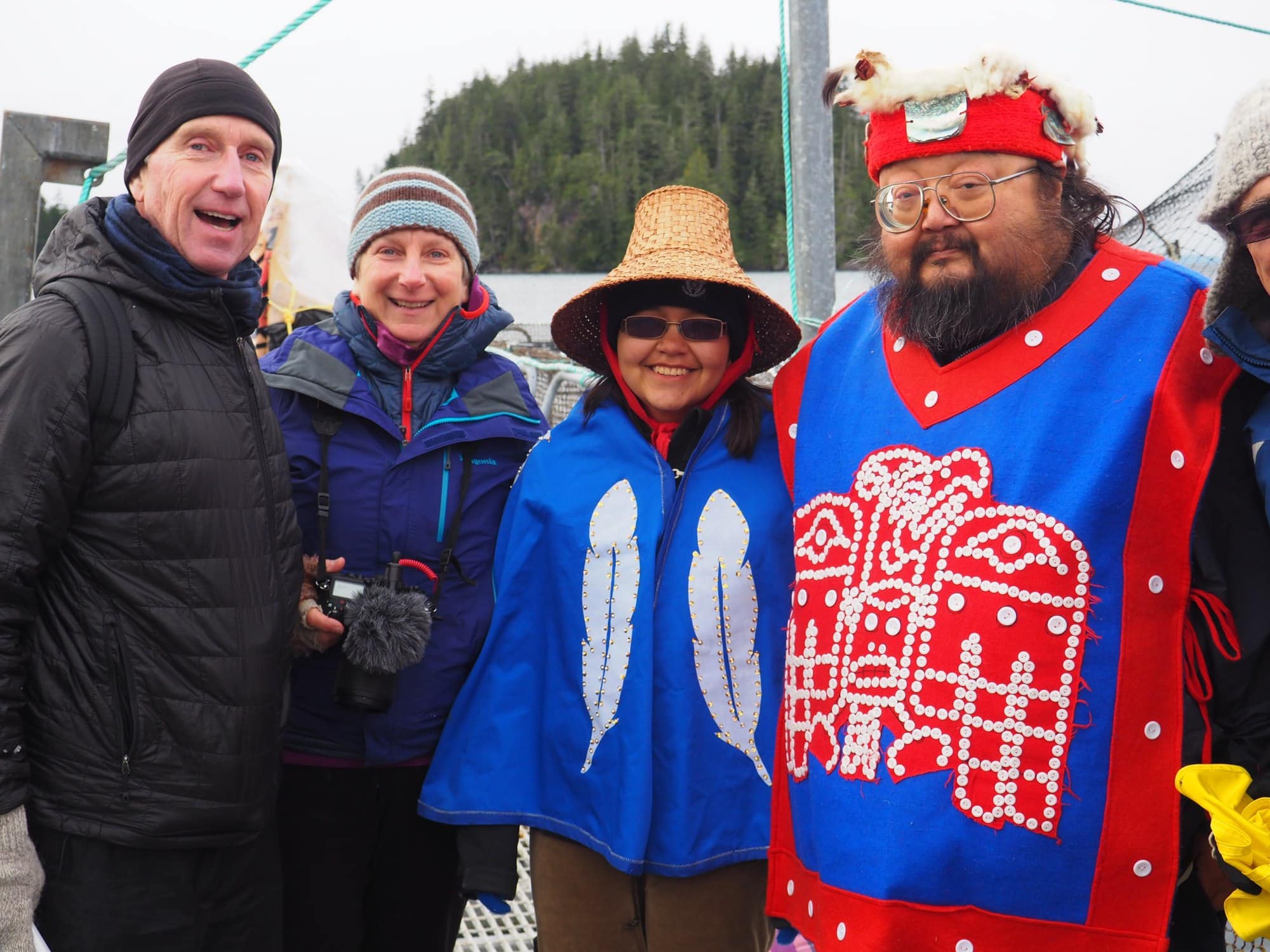
Premier Horgan travels to Alert Bay with ministers
In response, Premier John Horgan, along with his Ministers of Agriculture, Transport, and Indigenous Relations and Reconciliation, travelled to Alert Bay to hear their concerns. During that meeting Horgan stated that if the fish farm tenures expire in less than 24 months, they should not be allowed to restock. The tenures of the farms being occupied expire next June, in 2018.
BC’s Minister of Agriculture, Lana Popham, sent a letter to Marine Harvest. “I have recently become aware of (your) decision to restock the Port Elizabeth salmon farm,” wrote Popham, continuing “Whatever operational decisions you should choose to make, the province retains all of its rights under the current tenure agreements, including potentially the requirement that you return possession of tenured sites at the end of the current terms.”
Bonny & I heeded the call to join a gathering on October 14th at the Swanson Island fish farm occupation. It was a long journey, but well worth the trip. It was amazing to hear so many chiefs and leaders gathered in one place—including environmental elder David Suzuki.
Alexandra Morton decides to get arrested
The following morning we headed out to Port Elizabeth, where fresh smolts were being deposited in Marine Harvest’s open-net pen salmon farm for growing out. I sat on the back deck in the dark with Alexandra Morton, who was considering getting arrested that day, after spending decades trying every legal means to protect wild salmon from salmon farming.
She did climb up on the floats that day with Chief Alfred, but Marine Harvest would not have them arrested—even though they charged Alex with trespass last year for merely touching a fish farm buoy with a spoon. Two RCMP zodiacs had escorted the Viktoria Viking—they both sped out of the bay when the fish had been off-loaded. A fierce sadness washed through me and I fought back tears when we left Alex alone on the float with Marine Harvest staff and their hired security guard. Ernest would return that evening with tents and food to sustain the occupation.
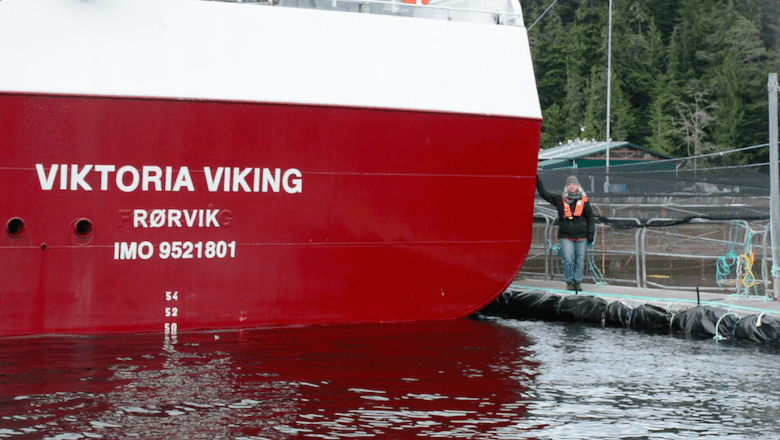
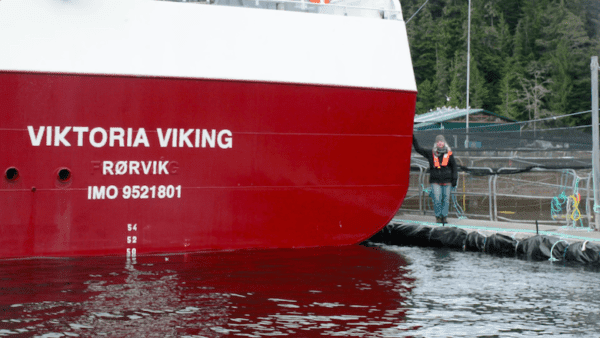
Peaceful occupations strong and on-going
A few days later Marine Harvest went to court in Vancouver to apply for an injunction, but themselves adjourned the proceedings before lunch. The occupations are now on-going, with the RCMP refusing to make arrests as ’no-one is breaking the law’.
The Nations of the Broughton Archipelago have said no to fish farms for 30 years, and watched their wild salmon populations crash in the same time period. Open-net pen salmon farming is an outdated technology from the 80s. It’s time to bring BC’s industry into modern times by removing the farms from the ocean. There are alternatives such as land-based closed containment systems. This will allow the focus in the ocean to be on rebuilding wild salmon stocks to create abundance for everyone—including First Nations, residents, and wildlife like bears, wolves, orcas and eagles.
Dan Lewis is Executive Director of Clayoquot Action. Photos by Bonny Glambeck
